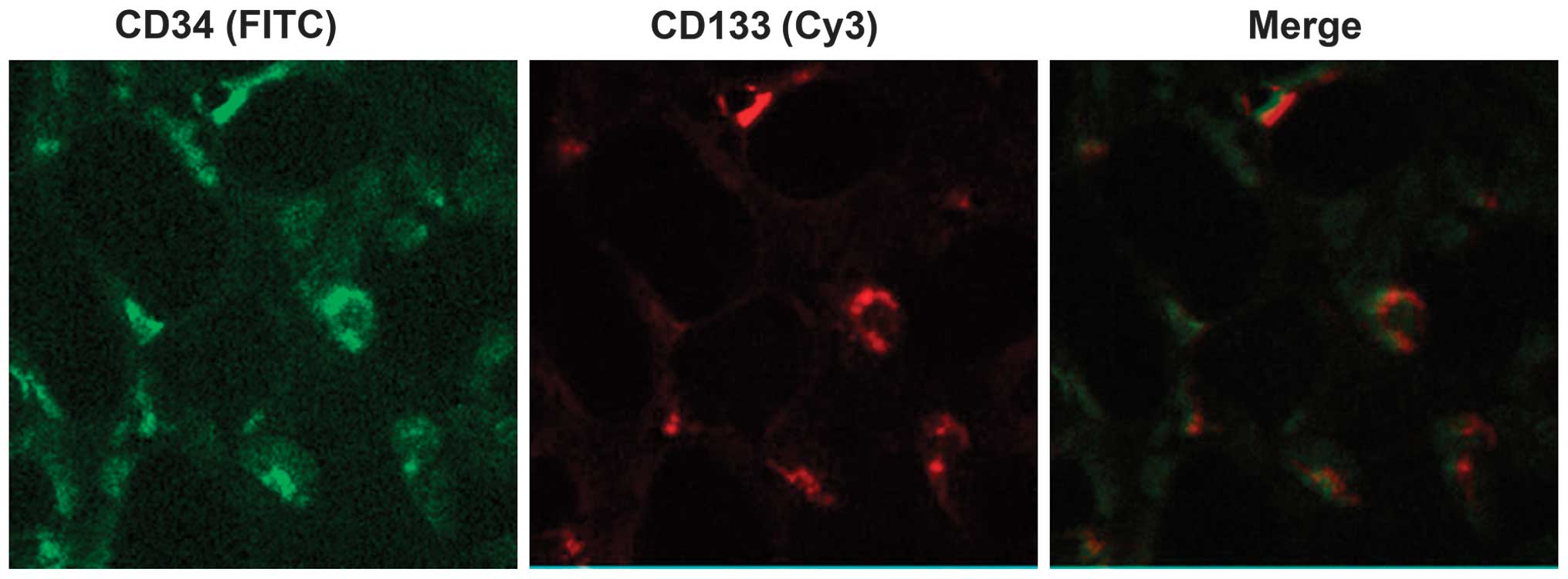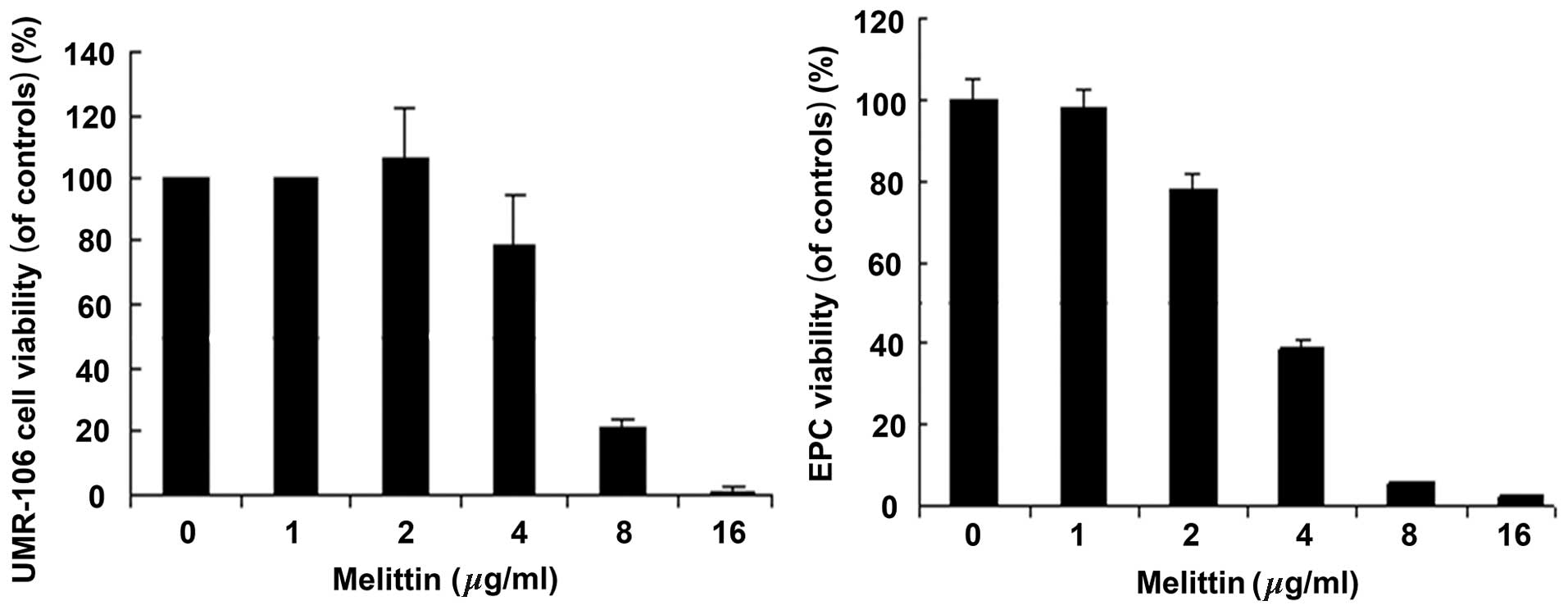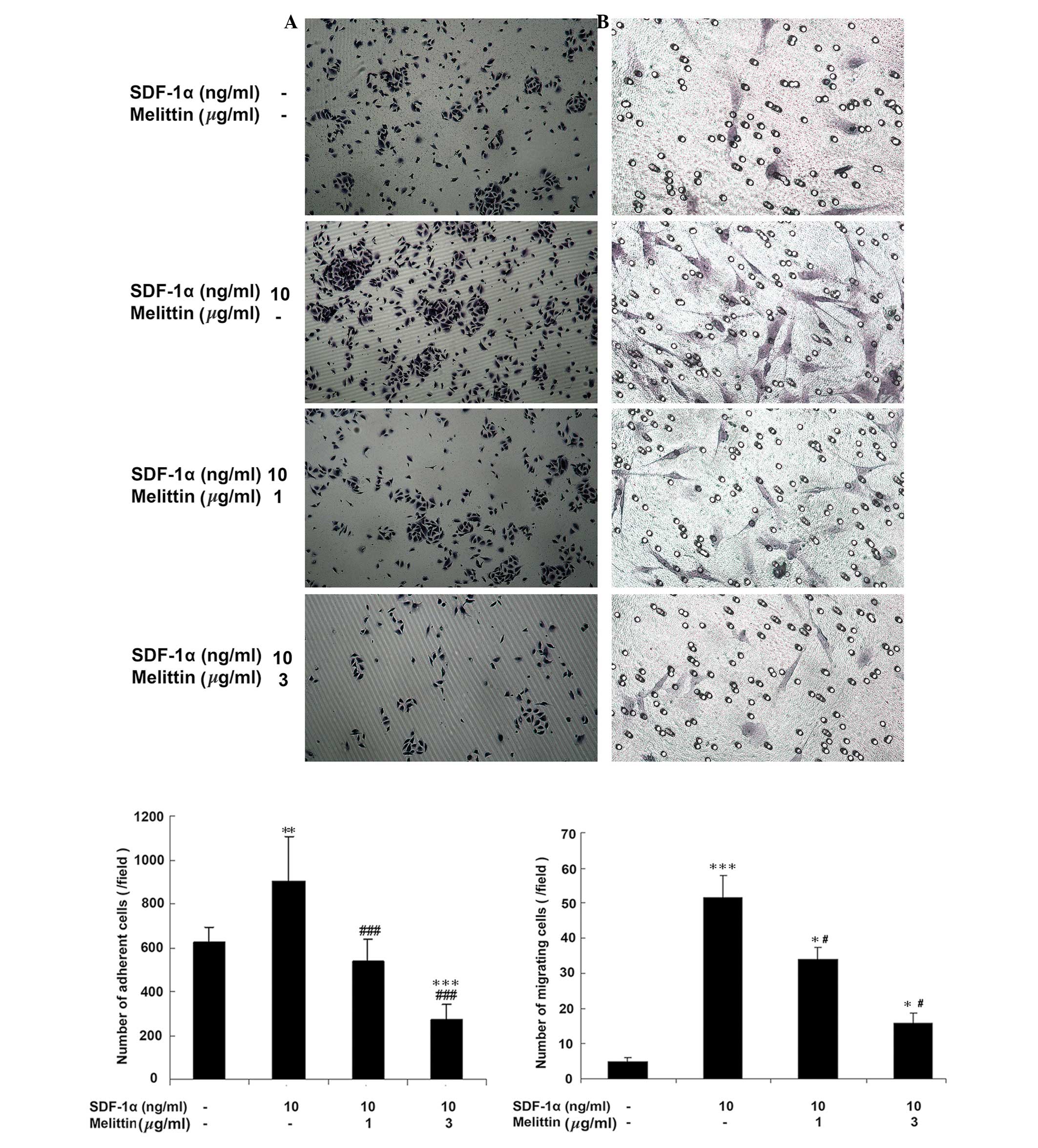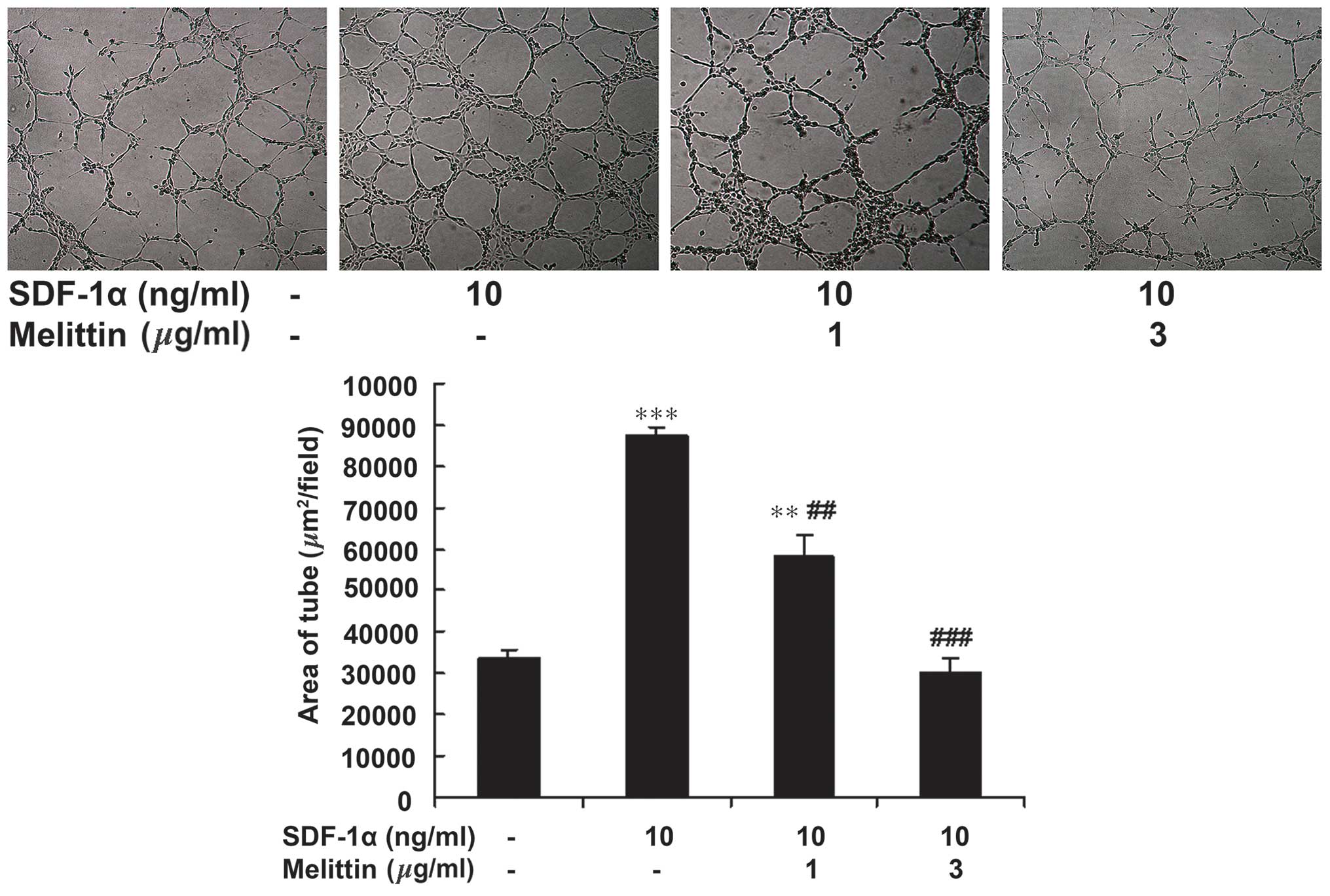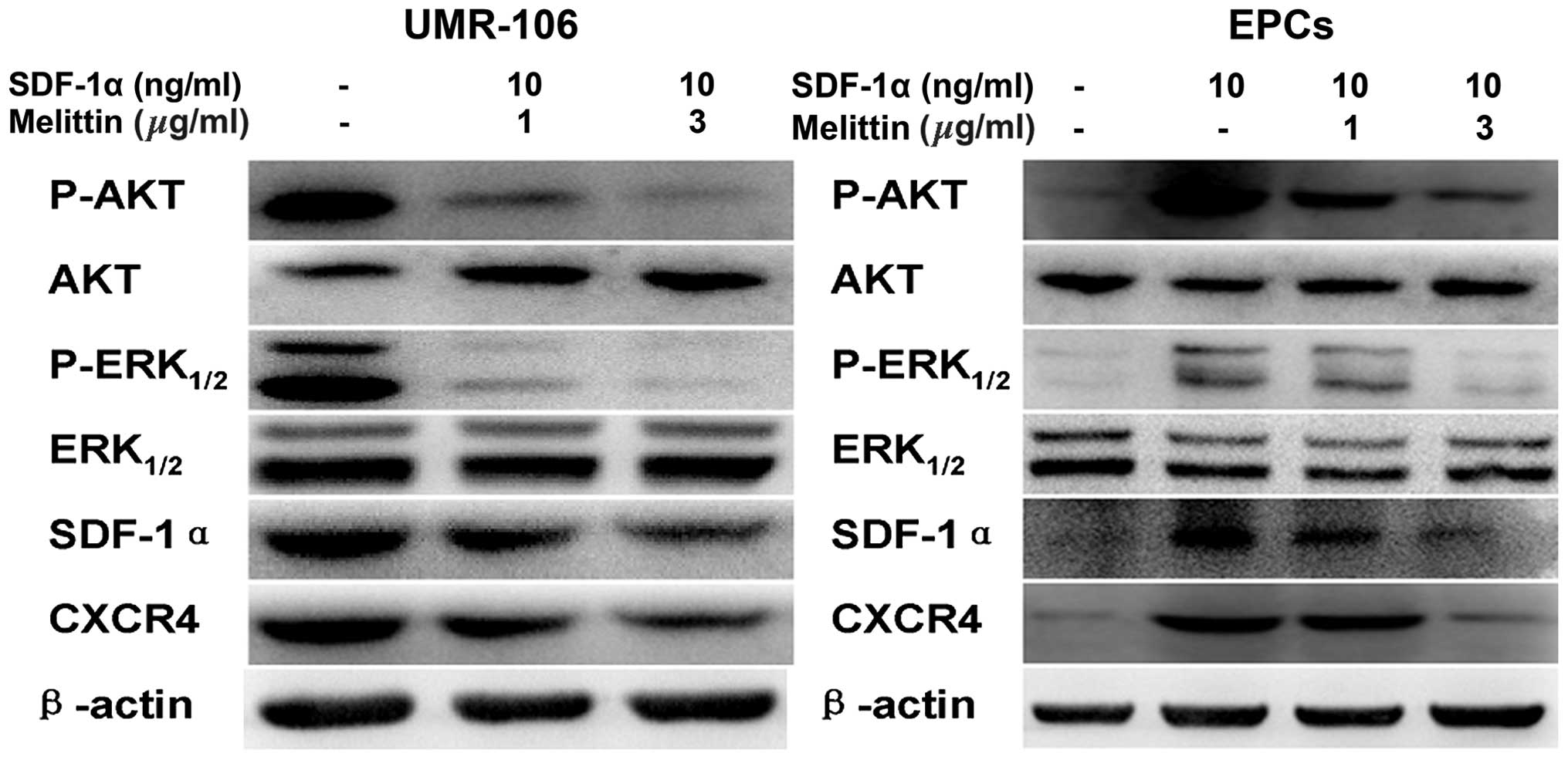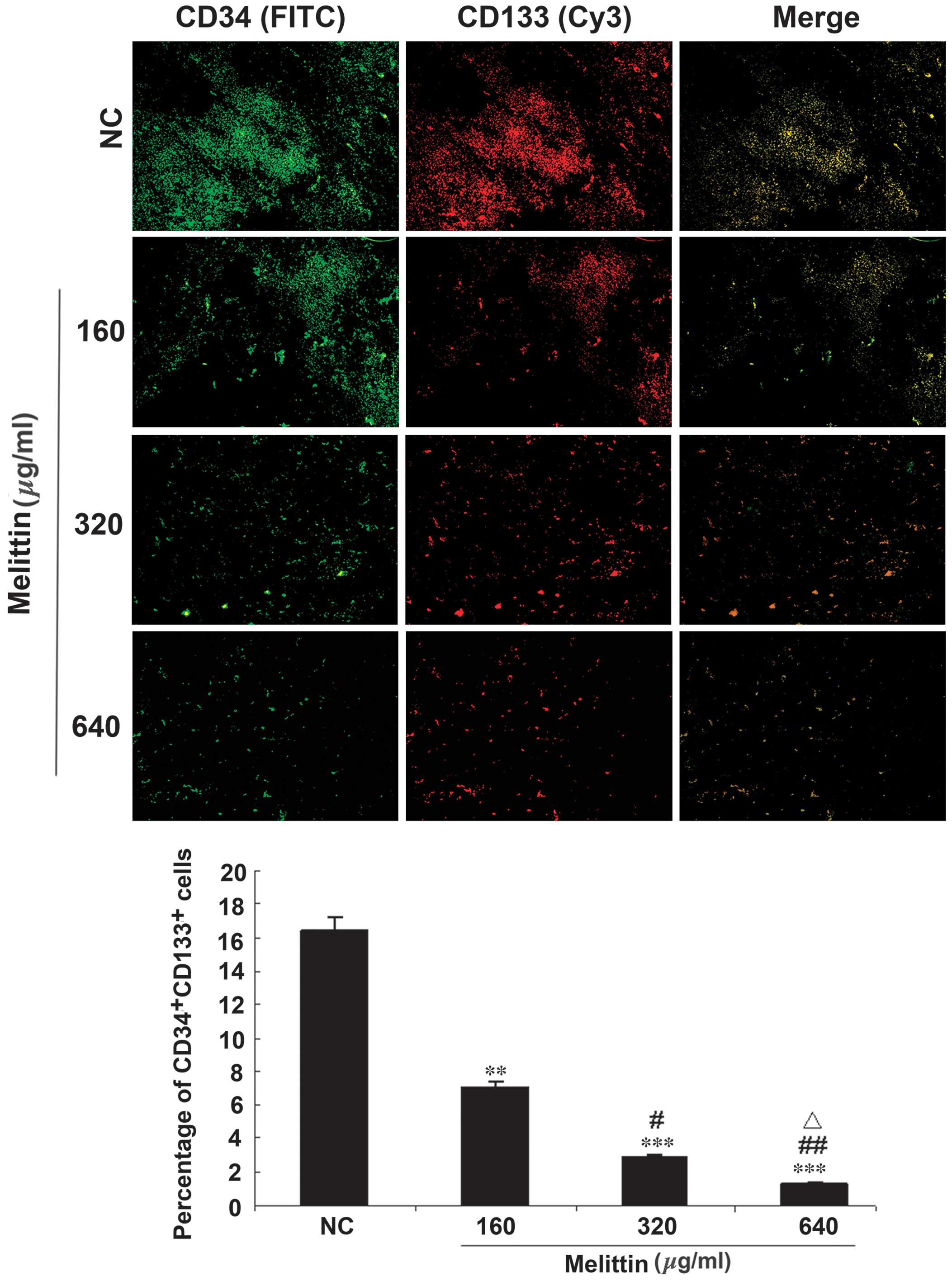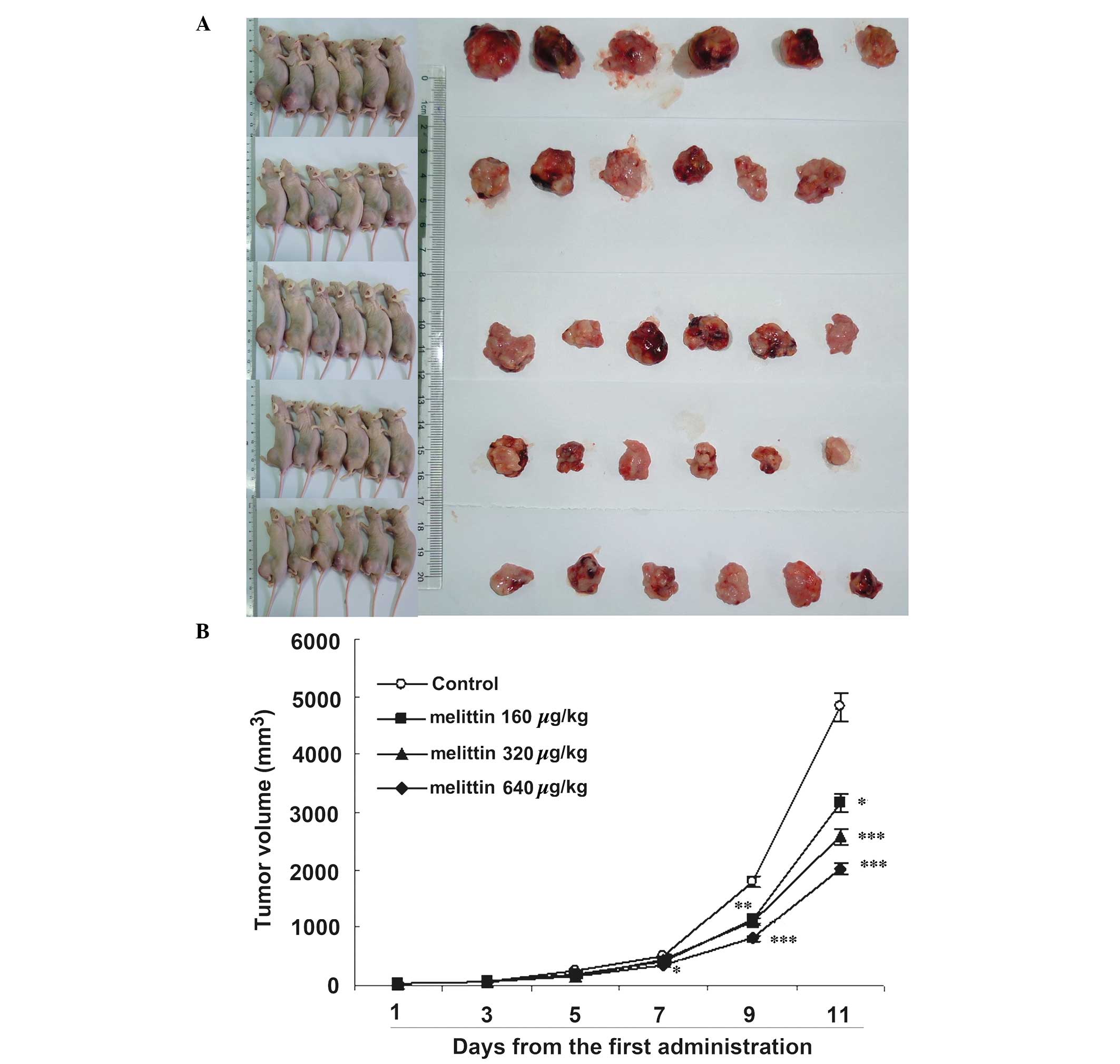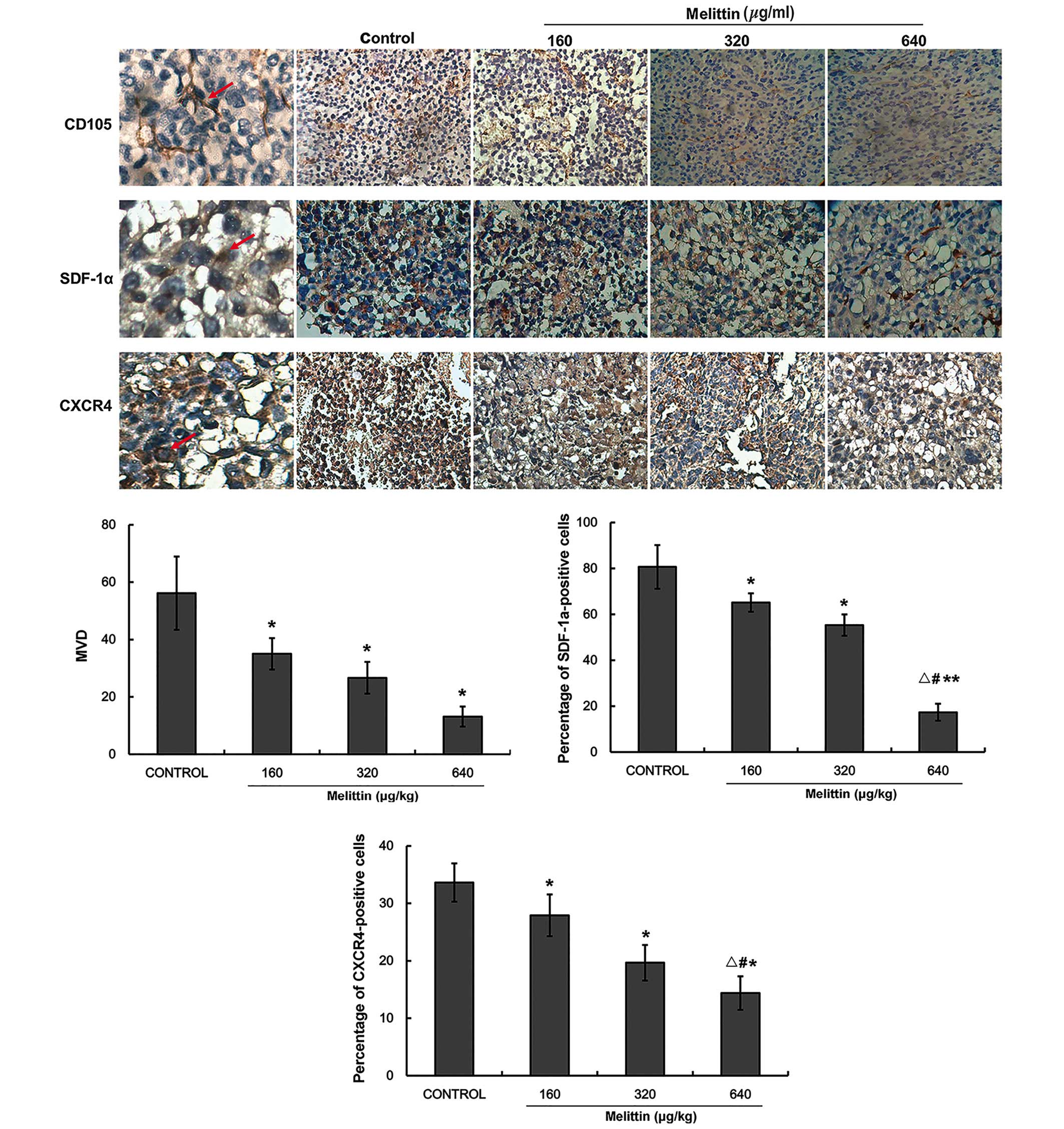|
1
|
Picci P: Osteosarcoma (osteogenic
sarcoma). Orphanet J Rare Dis. 2:62007. View Article : Google Scholar : PubMed/NCBI
|
|
2
|
Eilber F, Giuliano A, Eckardt J, Patterson
K, Moseley S and Goodnight J: Adjuvant chemotherapy for
osteosarcoma: A randomized prospective trial. J Clin Oncol.
5:21–26. 1987.PubMed/NCBI
|
|
3
|
Bernthal NM, Federman N, Eilber FR, Nelson
SD, Eckardt JJ, Eilber FC and Tap WD: Long-term results (>25
years) of a randomized, prospective clinical trial evaluating
chemotherapy in patients with high-grade, operable osteosarcoma.
Cancer. 118:5888–5893. 2012. View Article : Google Scholar : PubMed/NCBI
|
|
4
|
Whelan JS, Jinks RC, McTiernan A, Sydes
MR, Hook JM, Trani L, Uscinska B, Bramwell V, Lewis IJ, Nooji MA,
et al: Survival from high-grade localised extremity osteosarcoma:
Combined results and prognostic factors from three European
Osteosarcoma Intergroup randomised controlled trials. Ann Oncol.
23:1607–1616. 2012. View Article : Google Scholar :
|
|
5
|
Pluda JM: Tumor-associated angiogenesis:
Mechanisms, clinical implications, and therapeutic strategies.
Semin Oncol. 24:203–218. 1997.PubMed/NCBI
|
|
6
|
de Bont ES, Guikema JE, Scherpen F,
Meeuwsen T, Kamps WA, Vellenga E and Bos NA: Mobilized human CD34+
hematopoietic stem cells enhance tumor growth in a nonobese
diabetic/severe combined immunodeficient mouse model of human
non-Hodgkin's lymphoma. Cancer Res. 61:7654–7659. 2001.PubMed/NCBI
|
|
7
|
Duan HX, Cheng LM, Wang J, Hu LS and Lu
GX: Angiogenic potential difference between two types of
endothelial progenitor cells from human umbilical cord blood. Cell
Biol Int. 30:1018–1027. 2006. View Article : Google Scholar : PubMed/NCBI
|
|
8
|
Asahara T, Masuda H, Takahashi T, Kalka C,
Pastore C, Silver M, Kearne M, Magner M and Isner JM: Bone marrow
origin of endothelial progenitor cells responsible for postnatal
vasculogenesis in physiological and pathological
neovascularization. Circ Res. 85:221–228. 1999. View Article : Google Scholar : PubMed/NCBI
|
|
9
|
Kryczek I, Wei S, Keller E, Liu R and Zou
W: Stroma-derived factor (SDF-1/CXCL12) and human tumor
pathogenesis. Am J Physiol Cell Physiol. 292:C987–C995. 2007.
View Article : Google Scholar
|
|
10
|
Vajkoczy P, Blum S, Lamparter M,
Mailhammer R, Erber R, Engelhardt B, Vestweber D and Hatzopoulos
AK: Multistep nature of microvascular recruitment of ex
vivo-expanded embryonic endothelial progenitor cells during tumor
angiogenesis. J Exp Med. 197:1755–1765. 2003. View Article : Google Scholar : PubMed/NCBI
|
|
11
|
Mukai N, Akahori T, Komaki M, Li Q,
Kanayasu-Toyoda T, Ishii-Watabe A, Kobayashi A, Yamaguchi T, Abe M,
Amagasa T and Morita I: A comparison of the tube forming potentials
of early and late endothelial progenitor cells. Exp Cell Res.
314:430–440. 2008. View Article : Google Scholar
|
|
12
|
Uehara F, Tome Y, Miwa S, Hiroshima Y,
Yano S, Yamamoto M, Mii S, Maehara H, Bouvet M, Kanaya F and
Hoffman RM: Osteosarcoma cells enhance angiogenesis visualized by
color-coded imaging in the in vivo Gelfoam® assay. J
Cell Biochem. 115:1490–1494. 2014. View Article : Google Scholar : PubMed/NCBI
|
|
13
|
Mueller SM, Mizuno S, Gerstenfeld LC and
Glowacki J: Medium perfusion enhances osteogenesis by murine
osteosarcoma cells in three-dimensional collagen sponges. J Bone
Miner Res. 14:2118–2126. 1999. View Article : Google Scholar
|
|
14
|
Kumarasuriyar A, Murali S, Nurcombe V and
Cool SM: Glycosaminoglycan composition changes with MG-63
osteosarcoma osteogenesis in vitro and induces human mesenchymal
stem cell aggregation. J Cell Physiol. 218:501–511. 2009.
View Article : Google Scholar
|
|
15
|
Bonig H, Priestley GV, Oehler V and
Papayannopoulou T: Hematopoietic progenitor cells (HPC) from
mobilized peripheral blood display enhanced migration and marrow
homing compared to steady-state bone marrow HPC. Exp Hematol.
35:326–334. 2007. View Article : Google Scholar : PubMed/NCBI
|
|
16
|
Müller A, Homey B, Soto H, Ge N, Catron D,
Buchanan ME, McClanahan T, Murphy E, Yuan W, Wagner SN, et al:
Involvement of chemokine receptors in breast cancer metastasis.
Nature. 410:50–56. 2001. View Article : Google Scholar : PubMed/NCBI
|
|
17
|
Kim J, Mori T, Chen SL, Amersi FF,
Martinez SR, Kuo C, Turner RR, Ye X, Bilchik AJ, Morton DL and Hoon
DS: Chemokine receptor CXCR4 expression in patients with melanoma
and colorectal cancer liver metastases and the association with
disease outcome. Ann Surg. 244:113–120. 2006. View Article : Google Scholar : PubMed/NCBI
|
|
18
|
Sun YX, Schneider A, Jung Y, Wang J, Dai
J, Wang J, Cook K, Osman NI, Koh-Paige AJ, Shim H, et al: Skeletal
localization and neutralization of the SDF-1(CXCL12)/CXCR4 axis
blocks prostate cancer metastasis and growth in osseous sites in
vivo. J Bone Miner Res. 20:318–329. 2005. View Article : Google Scholar : PubMed/NCBI
|
|
19
|
Petit I, Jin D and Rafii S: The
SDF-1-CXCR4 signaling pathway: A molecular hub modulating
neo-angiogenesis. Trends Immunol. 28:299–307. 2007. View Article : Google Scholar : PubMed/NCBI
|
|
20
|
Oren Z and Shai Y: Selective lysis of
bacteria but not mammalian cells by diastereomers of melittin:
Structure-function study. Biochemistry. 36:1826–1835. 1997.
View Article : Google Scholar : PubMed/NCBI
|
|
21
|
Kubo H, Loegering DA, Adolphson CR and
Gleich GJ: Cytotoxic properties of eosinophil granule major basic
protein for tumor cells. Int Arch Allergy Immunol. 118:426–428.
1999. View Article : Google Scholar : PubMed/NCBI
|
|
22
|
Lazarev VN, Parfenova TM, Gularyan SK,
Misyurina OY, Akopian TA and Govorun VM: Induced expression of
melittin, an antimicrobial peptide, inhibits infection by Chlamydia
trachomatis and Mycoplasma hominis in a HeLa cell line. Int J
Antimicrob Agents. 19:133–137. 2002. View Article : Google Scholar : PubMed/NCBI
|
|
23
|
Li B, Gu W, Zhang C, Huang XQ, Han KQ and
Ling CQ: Growth arrest and apoptosis of the human hepatocellular
carcinoma cell line BEL-7402 induced by melittin. Onkologie.
29:367–371. 2006.PubMed/NCBI
|
|
24
|
Yeo SW, Seo JC and Choi YH: Induction of
the growth inhibition and apoptosis by bee venom in human breast
carcinoma MCF-7 cells. J Kor Acup Mox Soc. 20:45–62. 2003.
|
|
25
|
Jang MH, Shin MC, Lim S, Han SM, Park HJ,
Shin I, Lee JS, Kim KA, Kim EH and Kim CJ: Bee venom induces
apoptosis and inhibits expression of cyclooxygenase-2 mRNA in human
lung cancer cell line NCI-H1299. J Pharmacol Sci. 91:95–104. 2003.
View Article : Google Scholar : PubMed/NCBI
|
|
26
|
Huh JE, Baek YH, Lee MH, Choi DY, Park DS
and Lee JD: Bee venom inhibits tumor angiogenesis and metastasis by
inhibiting tyrosine phosphorylation of VEGFR-2 in LLC-tumor-bearing
mice. Cancer Lett. 292:98–110. 2010. View Article : Google Scholar : PubMed/NCBI
|
|
27
|
Cho HJ, Jeong YJ, Park KK, Park YY, Chung
IK, Lee KG, Yeo JH, Han SM, Bae YS and Chang YC: Bee venom
suppresses PMA-mediated MMP-9 gene activation via JNK/p38 and
NF-kappaB-dependent mechanisms. J Ethnopharmacol. 127:662–668.
2010. View Article : Google Scholar
|
|
28
|
Liu S, Yu M, He Y, Xiao L, Wang F, Song C,
Sun S, Ling C and Xu Z: Melittin prevents liver cancer cell
metastasis through inhibition of the Rac1-dependent pathway.
Hepatology. 47:1964–1973. 2008. View Article : Google Scholar : PubMed/NCBI
|
|
29
|
Guo W, Feng JM, Yao L, Sun L and Zhu GQ:
Transplantation of endothelial progenitor cells in treating rats
with IgA nephropathy. BMC Nephrol. 15:1102014. View Article : Google Scholar : PubMed/NCBI
|
|
30
|
Quaranta P, Antonini S, Spiga S, Mazzanti
B, Curcio M, Mulas G, Diana M, Marzola P, Mosca F and Longoni B:
Co-transplantation of endothelial progenitor cells and pancreatic
islets to induce long-lasting normoglycemia in
streptozotocin-treated diabetic rats. PLoS One. 9:e947832014.
View Article : Google Scholar : PubMed/NCBI
|
|
31
|
Massa M, Rosti V, Ramajoli I, Campanelli
R, Pecci A, Viarengo G, Meli V, Marchetti M, Hoffman R and Barosi
G: Circulating CD34+, CD133+, and vascular endothelial growth
factor receptor 2-positive endothelial progenitor cells in
myelofibrosis with myeloid metaplasia. J Clin Oncol. 23:5688–5695.
2005. View Article : Google Scholar : PubMed/NCBI
|
|
32
|
Fritzenwanger M, Lorenz F, Jung C, Fabris
M, Thude H, Barz D and Figulla HR: Differential number of CD34+,
CD133+ and CD34+/CD133+ cells in peripheral blood of patients with
congestive heart failure. Eur J Med Res. 14:113–117.
2009.PubMed/NCBI
|
|
33
|
Fisher JL, Mackie PS, Howard ML, Zhou H
and Choong PF: The expression of the urokinase plasminogen
activator system in metastatic murine osteosarcoma: An in vivo
mouse model. Clin Cancer Res. 7:1654–1660. 2001.PubMed/NCBI
|
|
34
|
Cai KX, Tse LY, Leung C, Tam PK, Xu R and
Sham MH: Suppression of lung tumor growth and metastasis in mice by
adeno-associated virus-mediated expression of vasostatin. Clin
Cancer Res. 14:939–949. 2008. View Article : Google Scholar : PubMed/NCBI
|
|
35
|
Weidner N, Semple JP, Welch WR and Folkman
J: Tumor angiogenesis and metastasis--correlation in invasive
breast carcinoma. N Engl J Med. 324:1–8. 1991. View Article : Google Scholar : PubMed/NCBI
|
|
36
|
Ta HT, Dass CR, Choong PF and Dunstan DE:
Osteosarcoma treatment: State of the art. Cancer Metastasis Rev.
28:247–263. 2009. View Article : Google Scholar : PubMed/NCBI
|
|
37
|
Xu S, Wen H and Jiang H: Urotensin II
promotes the proliferation of endothelial progenitor cells through
p38 and p44/42 MAPK activation. Mol Med Rep. 6:197–200.
2012.PubMed/NCBI
|
|
38
|
Park JH, Jeong YJ, Park KK, Cho HJ, Chung
IK, Min KS, Kim M, Lee KG, Yeo JH, Park KK and Chan YC: Melittin
suppresses PMA-induced tumor cell invasion by inhibiting NF-kappaB
and AP-1-dependent MMP-9 expression. Mol Cells. 29:209–215. 2010.
View Article : Google Scholar : PubMed/NCBI
|
|
39
|
Fan Q, Hu Y, Pang H, Sun J, Wang Z and Li
J: Melittin protein inhibits the proliferation of MG63 cells by
activating inositol-requiring protein-1α and X-box binding protein
1-mediated apoptosis. Mol Med Rep. 9:1365–1370. 2014.PubMed/NCBI
|
|
40
|
Gao H, Priebe W, Glod J and Banerjee D:
Activation of signal transducers and activators of transcription 3
and focal adhesion kinase by stromal cell-derived factor 1 is
required for migration of human mesenchymal stem cells in response
to tumor cell-conditioned medium. Stem Cells. 27:857–865. 2009.
View Article : Google Scholar : PubMed/NCBI
|
|
41
|
Huang CY, Lee CY, Chen MY, Yang WH, Chen
YH, Chang CH, Hsu HC, Fong YC and Tang CH: Stromal cell-derived
factor-1/CXCR4 enhanced motility of human osteosarcoma cells
involves MEK1/2, ERK and NF-kappaB-dependent pathways. J Cell
Physiol. 221:204–212. 2009. View Article : Google Scholar : PubMed/NCBI
|
|
42
|
Petit I, Goichberg P, Spiegel A, Peled A,
Brodie C, Seger R, Nagler A, Alon R and Lapidot T: Atypical
PKC-zeta regulates SDF-1-mediated migration and development of
human CD34+ progenitor cells. J Clin Invest. 115:168–176. 2005.
View Article : Google Scholar : PubMed/NCBI
|
|
43
|
Lu DY, Tang CH, Yeh WL, Wong KL, Lin CP,
Chen YH, Lai CH, Chen YF, Leung YM and Fu WM: SDF-1alpha
up-regulates interleukin-6 through CXCR4, PI3K/Akt, ERK, and
NF-kappaB-dependent pathway in microglia. Eur J Pharmacol.
613:146–154. 2009. View Article : Google Scholar : PubMed/NCBI
|
|
44
|
Smadja DM, Bièche I, Uzan G, Bompais H,
Muller L, Boisson-Vidal C, Vidaud M, Aiach M and Gaussem P: PAR-1
activation on human late endothelial progenitor cells enhances
angiogenesis in vitro with upregulation of the SDF-1/CXCR4 system.
Arterioscler Thromb Vasc Biol. 25:2321–2327. 2005. View Article : Google Scholar : PubMed/NCBI
|
|
45
|
Walter DH, Haendeler J, Reinhold J,
Rochwalsky U, Seeger F, Honold J, Hoffman J, Urbich C, Lehmann R,
Arenza-Seisdesdos F, et al: Impaired CXCR4 signaling contributes to
the reduced neovascularization capacity of endothelial progenitor
cells from patients with coronary artery disease. Circ Res.
97:1142–1151. 2005. View Article : Google Scholar : PubMed/NCBI
|
|
46
|
Maksym RB, Tarnowski M, Grymula K,
Tarnowksa J, Wysoczynski M, Liu R, Czerny B, Ratajczak J, Kucia M
and Ratajczak MZ: The role of stromal-derived factor-1--CXCR7 axis
in development and cancer. Eur J Pharmacol. 625:31–40. 2009.
View Article : Google Scholar : PubMed/NCBI
|
|
47
|
Yamaguchi J, Kusano KF, Masuo O, Kawamoto
A, Silver M, Murasawa S, Bosch-Marce M, Masuda H, Losordo DW, Isner
JM and Asahara T: Stromal cell-derived factor-1 effects on ex vivo
expanded endothelial progenitor cell recruitment for ischemic
neovascularization. Circulation. 107:1322–1328. 2003. View Article : Google Scholar : PubMed/NCBI
|
|
48
|
Loetscher M, Geiser T, O'Reilly T, Zwahlen
R, Baggiolini M and Moser B: Cloning of a human seven-transmembrane
domain receptor, LESTR, that is highly expressed in leukocytes. J
Biol Chem. 269:232–237. 1994.PubMed/NCBI
|
|
49
|
Folkman J: Tumor angiogenesis. Cancer
Medicine. Holland JF, Bast RC and Morton DL: 4th edition. Williams
& Wilkins; Baltimore: pp. 181–204. 1997
|
|
50
|
Lin F, Zheng SE, Shen Z, Tang LN, Chen P,
Sun YJ, Zhao H and Yao Y: Relationships between levels of CXCR4 and
VEGF and blood-borne metastasis and survival in patients with
osteosarcoma. Med Oncol. 28:649–653. 2011. View Article : Google Scholar
|
|
51
|
Zhang P, Dong L, Yan K, Long H, Yang TT,
Dong MQ, Zhou Y, Fan QY and Ma BA: CXCR4-mediated osteosarcoma
growth and pulmonary metastasis is promoted by mesenchymal stem
cells through VEGF. Oncol Rep. 30:1753–1761. 2013.PubMed/NCBI
|
|
52
|
Jeong YJ, Choi Y, Shin JM, Cho HJ, Kang
JH, Park KK, Choe JY, Bae YS, Han SM, Kim CH, Chang HW and Chang
YC: Melittin suppresses EGF-induced cell motility and invasion by
inhibiting PI3K/Akt/mTOR signaling pathway in breast cancer cells.
Food Chem Toxicol. 68:218–225. 2014. View Article : Google Scholar : PubMed/NCBI
|
|
53
|
Zhu G, Song M, Wang H, Zhao G, Yu Z, Yin
Y, Zhao X and Huang L: Young environment reverses the declined
activity of aged rat-derived endothelial progenitor cells:
involvement of the phosphatidylinositol 3-kinase/Akt signaling
pathway. Ann Vasc Surg. 23:519–534. 2009. View Article : Google Scholar : PubMed/NCBI
|
|
54
|
Brewer CA, Setterdahl JJ, Li MJ, Johnston
JM, Mann JL and McAsey ME: Endoglin expression as a measure of
microvessel density in cervical cancer. Obstet Gynecol. 96:224–228.
2000.PubMed/NCBI
|
|
55
|
Wikström P, Lissbrant IF, Stattin P,
Egevad L and Bergh A: Endoglin (CD105) is expressed on immature
blood vessels and is a marker for survival in prostate cancer.
Prostate. 51:268–275. 2002. View Article : Google Scholar : PubMed/NCBI
|















